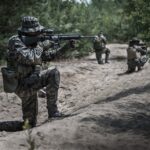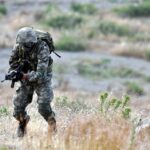Soldiers are required to be in top physical condition in order to carry out their duties effectively. Their physical fitness and health regimens are rigorous and demanding, ensuring that they are fit to serve and protect their country. Let’s explore the various aspects of the physical fitness and health regimens of soldiers.
Physical Fitness Tests
One of the key aspects of a soldier’s physical fitness regimen is the regular completion of physical fitness tests. These tests are designed to assess a soldier’s strength, endurance, and overall physical readiness. Some common components of these tests include push-ups, sit-ups, and a timed run. Soldiers must meet certain standards in each of these areas in order to pass the test.
Strength Training
Strength training is a crucial component of a soldier’s fitness regimen. Soldiers must have the strength to carry heavy gear, navigate difficult terrain, and engage in combat if necessary. Some common strength training exercises for soldiers include weightlifting, calisthenics, and bodyweight exercises.
Cardiovascular Training
Cardiovascular fitness is also essential for soldiers, as they must have the endurance to engage in sustained physical activity for extended periods of time. Soldiers often engage in activities such as running, swimming, and cycling to improve their cardiovascular fitness. These activities help soldiers build endurance and improve their overall physical conditioning.
Diet and Nutrition
In addition to physical training, soldiers must also pay careful attention to their diet and nutrition. A healthy diet is essential for maintaining optimal physical fitness and overall health. Soldiers need to consume a balanced diet that provides them with the energy and nutrients they need to perform their duties effectively.
Hydration
Staying hydrated is crucial for soldiers, especially during training exercises and missions. Dehydration can impair physical performance and cognitive function, putting soldiers at risk. Soldiers are encouraged to drink plenty of water throughout the day, particularly in hot and humid environments.
Proper Nutrition
Soldiers must also ensure that they are consuming a diet that is rich in nutrients and provides them with the energy they need to perform their duties effectively. A diet that is high in protein, complex carbohydrates, and healthy fats is essential for maintaining optimal physical fitness and health.
Rest and Recovery
Rest and recovery are crucial aspects of a soldier’s physical fitness regimen. Soldiers must allow their bodies time to recover from intense training sessions and missions in order to prevent injury and maintain optimal performance. Adequate rest and recovery also help soldiers to reduce stress and improve their overall well-being.
Sleep
Sleep is essential for maintaining optimal physical and mental health. Soldiers must ensure that they are getting enough sleep each night in order to recover from the demands of their training and duties. Lack of sleep can impair cognitive function, physical performance, and overall health.
Recovery Techniques
Soldiers often use various recovery techniques to help their bodies recover from intense physical activity. Some common recovery techniques include foam rolling, stretching, massage therapy, and ice baths. These techniques help to reduce muscle soreness, improve flexibility, and promote overall recovery.
Mental Fitness
In addition to physical fitness, soldiers must also maintain their mental fitness in order to effectively perform their duties. Mental fitness involves staying mentally sharp, focused, and resilient in the face of challenges and stress. Soldiers often engage in mental training exercises to improve their mental fitness.
Stress Management
Soldiers face high levels of stress in their roles, particularly during combat situations and training exercises. It is essential for soldiers to have effective stress management techniques in place to help them cope with stress and maintain their mental well-being. Some common stress management techniques for soldiers include mindfulness, deep breathing exercises, and talking to a mental health professional.
Resilience Training
Resilience training is designed to help soldiers develop the mental toughness and resilience they need to overcome challenges and adversity. Soldiers often engage in resilience training exercises that help them build confidence, adaptability, and mental strength. These exercises help soldiers to maintain their mental fitness and perform effectively in high-pressure situations.
Conclusion
The physical fitness and health regimens of soldiers are rigorous and demanding, requiring a combination of physical training, proper nutrition, rest and recovery, and mental fitness. By following a comprehensive fitness regimen, soldiers are able to maintain optimal physical and mental health, ensuring that they are fit to serve and protect their country.


